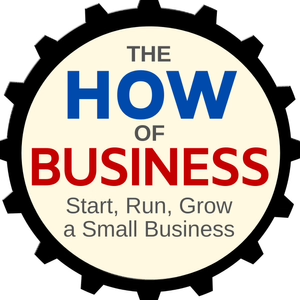
162: No Project Should Start From a Blank Sheet
Explicit content warning
10/17/19 • 69 min
Previous Episode

161: The Data Collection Explosion
David Haynes, Director at Ideate Software, joins us on this episode 161 of Art of Construction.
The explosion of Big Data happening in construction right now is unprecedented, tribe. With this comes questions, though. What is all this data being collected for? How can you use data to actually grow your business and influence your decisions RIGHT NOW?
At Ideate Software, David and his team work hard to answer this question by creating products such as Ideate BIMLink, where Autodesk Revit users can pull information from a file into Microsoft Excel and push volumes of precise, consequential BIM data back into their Revit model with speed, ease and accuracy. This process of breaking down the information silos and allowing data to be practically shared and utilized throughout the design and build process is exactly what the AEC industry needs. Otherwise, we're just collecting data to collect data.
Join Devon as he goes on a journey with David to find the key to unlocking the potential big data holds for the AEC industry, recap Ideate's involvement in Data Day at Digital Built Week, and predict what the future might hold for the world of construction and technology.
Next Episode

163: A Digital Pencil to Maximize Real Estate in Urban Places
Paul Waddell, Professor of City & Regional Planning at UC Berkley and Founder & President of UrbanSim, and Matt McMullen, Associate Principal at Abel Design Group join us on this episode 163 of Art of Construction. In our last episode, Devon spoke to Hypar about their plan to jumpstart the AEC industry with a tool that rapidly generates alternating building options using preexisting information and expertise from the built world. From that conversation Art of Construction was lead to Paul Waddell, who is doing something similar for the real estate market and urban development. Paul’s platform UrbanSim is an open source model system used by Metropolitan Planning Organizations and others for operational planning purposes in a variety of U.S. metropolitan areas and internationally. Urban Canvas is a visual platform within UrbanSim that allows you to rapidly visualize various development scenarios and see their effects using up to date analytics and data from the cloud. Essentially, it is the Hypar for urban planning and development. Last but not least in the toolkit is Penciler, a powerful new web-based tool for multifamily housing development that lets you create and compare many different building options for a site, helping you to make better-informed site acquisition decisions. Together, what all this amounts to is a set of tools that cut through a ridiculously large amount of data to help make development decisions effectively and immediately. These decisions can range from where you should put a single multifamily unit in a certain area of San Francisco, to major city and state policy decisions made by governmental bodies. In an age where progress stalls because no one can agree on what the solid facts are, UrbanSim allows people the opportunity to put their differences aside and make real decisions using trusted data they can visualize immediately. Talk about a huge impact. Join Devon and Matt as they go on a journey with Paul to learn all about his amazing platform UrbanSim, the real estate market of the future, and how the ability to rapidly evaluate development opportunities will push urban planning to new heights and lead to better communities for us all!
If you like this episode you’ll love
Episode Comments
Generate a badge
Get a badge for your website that links back to this episode
<a href="https://goodpods.com/podcasts/the-art-of-construction-298/162-no-project-should-start-from-a-blank-sheet-43333"> <img src="https://storage.googleapis.com/goodpods-images-bucket/badges/generic-badge-1.svg" alt="listen to 162: no project should start from a blank sheet on goodpods" style="width: 225px" /> </a>
Copy




